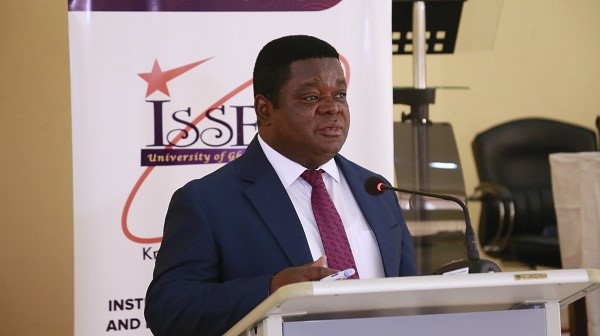There is a need to monitor and evaluate existing taxes introduced in the 2023 budget statement, Professor Peter Quartey, Director-Institute of Statistical, Social and Economic Research (ISSER), has argued; noting that this will lessen the tax burden on local businesses and consumers.
He said proper evaluation will tell policymakers which of the tax streams are working and delivering the needed results, and which ones are hurting industry and Ghanaians at large. Prof. Quartey emphasised that without evaluation government will continue piling on new taxes which are counterproductive and injurious to domestic manufacturers.
“The new taxes introduced in the 2023 budget statement have to be critically monitored and evaluated. We have to do what we term ‘evaluative thinking’ to see which ones are doing well, which ones are not and what the problems are. And, how do we ensure that we rake-in the needed revenue?
“Otherwise we pile on new taxes every now and then, and it becomes a bit of a challenge to manufacturers and importers,” he remarked at his outfit’s post-mid year budget review forum in Accra.
Even though some of the tax measures introduced have met and exceeded their targets, Professor Quartey maintained that others, such as the COVID-19 Levy and the Electronic Transaction (e-Levy), among others, need to have a relook.
“Personal income tax increased by 73.5 percent year-on-year, above the programmed target by 15.5 percent. In terms of personal income tax, I think we are doing well.
“The National Fiscal Stabilisation Levy (Growth and Sustainability Levy) grew by 40.2 percent but fell short of the target by 56.7 percent, and we have to revisit this carefully,” he advocated.
The E-levy also grew 386.1 percent year-on-year but fell short of the programme target by 53.6 percent, with Professor Quartey re-echoing the need for government to further reduce the rate from its current 1 percent, which he tagged ‘punitive’, to between 0.5 and 0.75 percent.
He argued that the growth recorded resulted from a reduction in the rate from 1.5 percent to the current 1 percent – hence the need for further reducing and tightening existing loopholes in the measure.
“We believe it should be reviewed further to 0.5 percent or 0.75 percent, and then we block the leakages through cash out (mobile money withdrawal) – which is actually a major loophole that people are exploiting. Block this loophole and reduce the rate, and I believe we will bring in more revenue.
“We also have the COVID-19 Levy that was instituted to fight the COVID pandemic. I do not think we are still fighting COVID, so we have to relook at some of these tax measures,” he further said.
Taxes introduced in 2023 budget
As means of addressing the country’s economic challenges and ensuring restoration of macroeconomic stability, government in the 2023 budget statement introduced some tax measures.
These measures include the introduction of a 35 percent marginal income tax rate for individuals and revision of the upper limits for vehicle benefits, and an increase of the concessional income tax rate from 1 percent to 5 percent.
There were also modifications of the regime for taxing capital gains; introduction of a minimum chargeable income tax; and conversion of the National Fiscal Stabilisation levy (NFSL) to the Growth and Sustainability Levy (GSL) to cover all entities.
Others are the increase in standard VAT from 12.5 percent to 15 percent; withdrawal of discount on benchmark import values on selected imported general goods and vehicles; re-introduction of public road tolls on selected roads; and the introduction of VAT invoicing to cover all VAT tax payers by 2024.
Professor Quartey in his presentation also emphasised the need for government to put in place strict expenditure controls to guarantee value for money.
“The improvement in some of the tax handles – and by extension revenue mobilisation -should be sustained, but with strict expenditure controls, value for money expenditures and a review of government’s size,” he urged.










